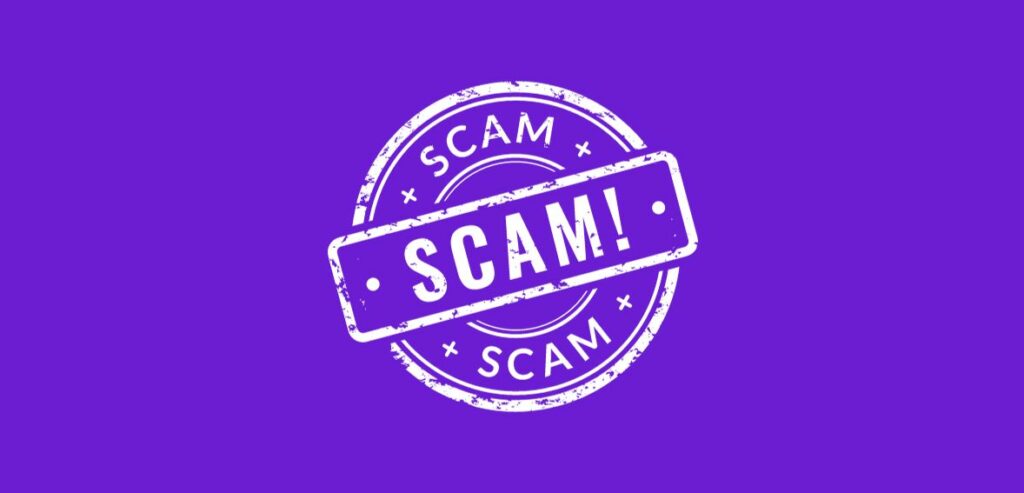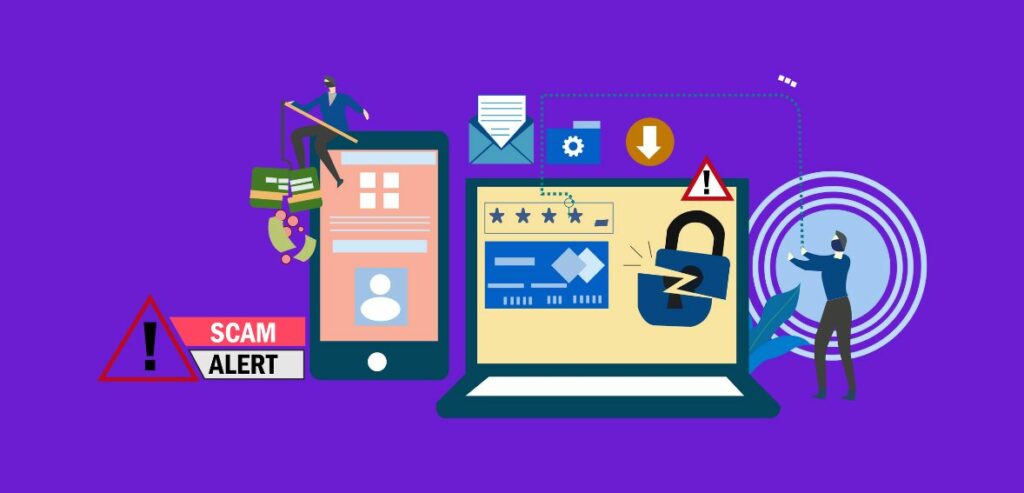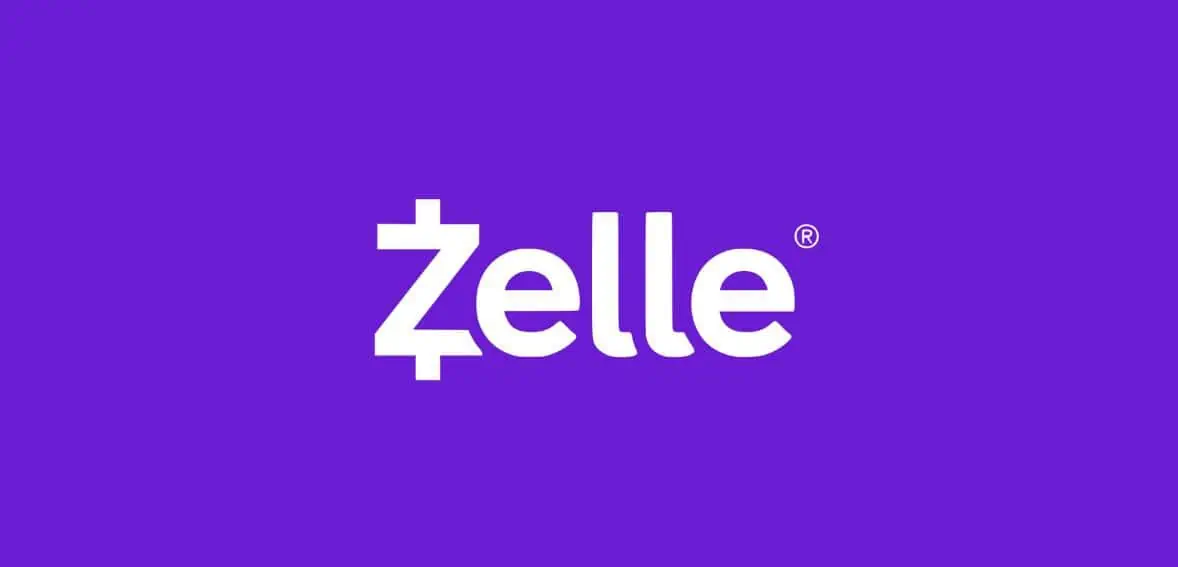The payments landscape has undergone a significant transformation in recent years and is still going on, with a new wave of apps like Zelle. Introduced in 2017 by a consortium of US banks, Zelle emerged as a leading P2P service, offering users an efficient, free, and fast method to send funds to friends, family, and select small businesses. In 2022 alone, Zelle facilitated a staggering 2.3 billion payments, totaling $629 billion in value.
With the participation of around 1800 financial institutions, Zelle has established a broad network accessible through various banking apps and as a standalone service. Despite its reputation as a generally secure fund transfer method, Zelle has faced criticism for providing limited consumer protection against scams.
Recent scrutiny came in the form of a US Senate report, revealing that Zelle business account users incurred losses of approximately $440 million due to fraudulent transactions in 2021. Criticism has been directed at banks for their perceived inaction in combating fraud and scams on the Zelle platform, coupled with a general reluctance to reimburse individuals who have fallen victim to deceptive schemes. In this article, we will delve into the workings of Zelle scams and explore preventive measures to avoid falling prey to them.
An Overview Of Zelle And The Scams Around It
Zelle stands as a user-friendly money transfer app designed to facilitate quick transactions with family or friends using your mobile device. Currently integrated into over 1,800 banking apps, Zelle offers a convenient way to send funds seamlessly.

To get started, you can enroll in Zelle either through the dedicated app or directly within your banking app if it supports Zelle’s services. Once enrolled, you can easily locate the recipient by entering their email address or phone number. Subsequently, select the desired amount to send, and the recipient will promptly receive instructions on how to access the payment. Owned by EWS, a financial technology (fintech) entity, Zelle operates under the ownership of seven major banks: Capital One, Truist, Bank of America, PNC Bank, JPMorgan, Wells Fargo, and US Bank.
Zelle scams are deceptive schemes executed through the Zelle platform. Unlike other platforms such as CashApp, PayPal, or Venmo, Zelle doesn’t have a wallet option; instead, it expedites transfers directly to and from bank accounts for faster payment transactions; that’s why it doesn’t even charge transaction charges. While the immediacy of this feature offers undeniable convenience, it also opens the door to exploitation by scammers. The funds swiftly entering or, in the case of scams, exiting your bank account leaves little room for recourse in the event of fraudulent activities.
Top Zelle Scams To Be Aware Of In 2024

1. Zelle Business Account Scam
A prevalent scam targeting sellers on online marketplaces, particularly those listing high-value items, involves a buyer proposing to pay through Zelle. The buyer initiates the transaction and seeks the seller’s email for payment but fails to send the agreed-upon amount.
The deceptive twist occurs when the buyer sends a fabricated email, seemingly from Zelle, asserting that the payment was made through a Zelle business account. The email claims the seller must upgrade to a Zelle business account to receive the funds, with a specified fee attached. To further manipulate the situation, the buyer contacts the seller, asserting they have already covered the purchase and the upgrade fee, simplifying the process. The final request is for the seller to reimburse them for the upgrade fee.
Here’s what you can do to protect yourself:
- Sellers should stay vigilant on platforms like Facebook, watching for red flags and scrutinizing payments and emails.
- Verification is key—sellers can reach out to Zelle directly to confirm the legitimacy of any account upgrade request.
- Never refund a payment without ensuring it has genuinely been posted to your account.
2. Account Takeover Scam
Account takeovers are precisely what the name suggests—a fraudulent attempt where a scammer gains control of your Zelle account, creates a new password, and locks you out. This type of scam typically unfolds similarly to phishing, spoofing, or smishing attacks, where the victim unwittingly clicks on a deceptive login link, granting scammers unauthorized access.
Once inside, scammers change the account password and other details, effectively barring you from your own account. As the compromised account is linked to your bank account, you could be held responsible for any unauthorized spending by the scammer.
Here’s what you can do to protect yourself:
- Only input your Zelle login details on the official Zelle app or website. Avoid responding to unfamiliar or suspicious links.
- Before conducting significant transfers, consider sending a $1 transfer to confirm that you’ve reached the intended recipient. This extra step adds a layer of security to ensure your funds are directed appropriately and minimizes the risk of falling victim to account takeovers.
3. Phishing Scam
A prevalent scam involves receiving deceptive emails or texts that appear to be from Zelle, a scheme that can manifest in various forms. These communications often mimic legitimate correspondence, making it challenging to discern the fraudulent nature of the contact.
In some instances, victims may receive phishing emails highlighting suspicious logins or purchases, prompting them to click on a link or provide personal information. These scams might escalate with a follow-up call from someone impersonating Zelle or a representative from the victim’s bank. More intricate scams may unfold in multiple stages, coercing individuals to pay for account upgrades or to recover supposed lost funds. The ultimate goal is to deceive recipients into clicking on links, divulging sensitive information, or even making unauthorized payments.
Here’s what you can do to protect yourself:
- See for typos and grammar mistakes, which are common indicators of fraudulent communication.
- Understand that Zelle will never request money via emails or phone calls. Treat any such solicitations with skepticism.
- Confirm that the sender’s email address is from an official and legitimate domain associated with Zelle.
- Refrain from clicking on any links within the suspicious email. Instead, promptly report the scam to Zelle.
- Be wary of a tone of forced urgency in communications, as this is often a red flag indicating potential fraud.
4. Charity Scams
Zelle is a favored option for scammers orchestrating charity scams, exploiting the limited recourse for refunds within the payment service. This scam is widespread across various payment platforms, but Zelle’s popularity makes it a prime target. Scammers often fabricate charities linked to current events, aiming to evoke empathy and generosity.
The typical scenario unfolds with a contact, whether through email, text, or another messaging service, informing you of a pressing tragedy requiring donations. The request is for your Zelle payment to contribute to the cause. Watch out for language discrepancies, spelling errors, and grammatical mistakes in these communications.
Regrettably, the funds you send don’t support the stated cause but instead end up directly in the hands of a potential scammer. Given Zelle’s nature, once the funds are in transit, there’s no viable avenue for reimbursement.
Here’s what you can do to protect yourself:
- Be vigilant for solicitations containing unusual language, including spelling and grammatical errors, as these can be indicators of a scam.
- Exercise extra caution when requests mandate payment through non-refundable methods, especially with Zelle.
- Even if a charity appears genuine, conduct thorough research on the organization. Look for reviews and verify their legitimacy before making any contributions.
5. Job Offers Scam
Often masquerading as ‘money mule scams,’ fake job offers are a prevalent online threat where scammers entice jobseekers with the promise of remote work and an appealing salary.
In these scams, individuals responding to job advertisements are typically asked to make an upfront payment, clearly for purchasing work equipment. However, the reality is that there is no legitimate job; it’s a ploy to deceive you into sending a Zelle payment.
Here’s what you can do to protect yourself:
- Exercise caution if the entire job interview process unfolds solely through text messages. Legitimate jobs typically involve more comprehensive interview procedures.
- Legitimate jobs don’t require you to cover the expenses of your own equipment. Be skeptical if asked to make payments for work-related tools.
- Never disclose your Zelle account information, including your phone number or email, to unknown individuals. Scammers often exploit this information for fraudulent activities.
6. Recovery and Refund Scam
Another deceitful tactic is the refund and recovery scam, where scammers manipulate individuals into believing they’ve suffered a financial loss, often using a fraudulent phone call impersonating their bank.
The scammer then guides the victim through a convoluted and entirely fabricated Zelle refund process, creating the illusion of recovering lost funds when, in reality, they are unwittingly paying the scammer.
Here’s what you can do to protect yourself:
- If you have doubts about whether you’re speaking to a legitimate bank representative, hang up and contact the official number listed on the bank’s website. This ensures you’re communicating with the actual institution.
- Be cautious if someone insists on upfront payment to “recover” your supposed lost funds or restore account access. Legitimate processes do not typically involve upfront fees.
Factors To Consider For Secure Zelle Transactions

When utilizing Zelle, it’s crucial to be mindful of certain factors to ensure secure and reliable transactions. Zelle has implemented measures that require banks to flag transactions deemed risky, particularly those involving payment to an account with no prior network activity.
While Zelle reports an impressive 99.9% transaction safety rate between 2022 and 2023, exercising caution remains essential, as no system is foolproof. Here are some practical rules of thumb to follow when using Zelle:
- Limit Transactions to Trusted Contacts:
Only use Zelle for payments to family, friends, and individuals you trust. Zelle transfers operate similarly to cash, and retrieving funds becomes challenging once they are sent.
- Be Careful with the Requests:
Beware of unsolicited or urgent payment requests. If you find yourself pressured to send funds hastily or face penalties, it’s a red flag. Take a step back and verify the legitimacy of the transaction before proceeding.
- Be Cautious and Get Educated:
Exercise caution if someone insists on Zelle as the exclusive payment method. A red flag should go up if the recipient claims to have no alternative payment options. If you’re unfamiliar with the person or uncertain about receiving what you paid for, using your credit card might be a more secure payment alternative.
For additional resources and guidance on recognizing scams and ensuring secure money transfers, Zelle offers a Safety Education Center. Explore these resources to enhance your awareness and protect yourself while using the service.
Can You Get Reimbursed If You Got Scammed?
Zelle users who fell victim to impostor scams will be happy to see this positive turn of events as financial institutions participating in the money transfer service initiate refunds. As of the 30th June announcement by EWS, the operating company behind Zelle-partnered financial institutions is now mandated to reimburse consumers for qualifying impostor scams. Zelle categorizes impostor scams as instances where individuals pretend to be affiliated with government entities, businesses, utility companies, or banks.
Prompted by concerns raised by lawmakers earlier this year, this policy change aims to establish consistency across the Zelle network and exceeds legal requirements. It’s crucial to note that while Federal Regulation E, governing electronic fund transfers, doesn’t mandate banks to reimburse consumers for authorized money transfers due to scams, federal law does necessitate reimbursement in cases of account hacking or the unauthorized use of stolen information for transactions.
If you find yourself in a situation where you used your Zelle account to send money to an impostor, the recommended course of action is to file a claim with both Zelle and your partnered financial institution. Zelle is actively reversing charges, with each claim assessed on an each-case basis. The returned funds will be subject to your bank’s policies.
For Zelle app users, reporting unauthorized transactions can be done over the phone. If you’re enrolled in Zelle through your bank or credit union, reach out to them to report scams or unauthorized transactions. Additionally, victims can directly report scams to the FBI ICCC. This proactive approach aims to address concerns and provide support to those affected by impostor scams within the Zelle network.
Conclusion
While Zelle has revolutionized peer-to-peer transactions, recent scrutiny reveals vulnerabilities leading to significant losses. Despite facilitating over 2.3 billion payments in 2022, Zelle faced criticism for limited consumer protection, with users reporting $440 million in fraudulent transactions in 2021.
Scams, including business accounts, account takeover, phishing, charity, job offers, and recovery scams, exploit Zelle’s immediate transfers, leaving victims with little recourse. Vigilance, verification, and caution are paramount, with recent positive developments allowing reimbursement for qualifying impostor scams, signaling a step toward enhanced consumer protection.
Frequently Asked Questions
What should I do if I suspect a Zelle transaction is a scam?
If you believe you've fallen victim to fraud or a scam involving Zelle, take prompt action by contacting your bank or credit union. The Electronic Funds Transfer Act provides consumers with legal rights and protections in cases of unauthorized payments.
Can I recover my funds from Zelle if I've been scammed?
In accordance with your bank's policies, your funds will be restored to your account. Zelle app users can report unauthorized transactions by calling 844-428-8542.
What steps should I take after being scammed through Zelle?
– Initiate a fraud claim and request a refund from the recipient.
– Attempt to cancel the payment and reach out to Zelle support.
– File a police report and inform your bank or credit card company.
– Report and block the Zelle scammer.
– Consider freezing your credit.Is it safe to accept Zelle payments from unfamiliar sources?
It's advisable to exercise caution when accepting Zelle payments from strangers, as there is a risk of encountering scammers. For enhanced safety, it's recommended to limit Zelle transactions to individuals you personally know and trust.


